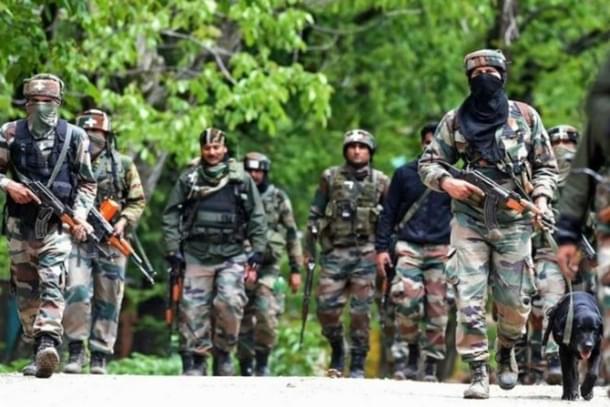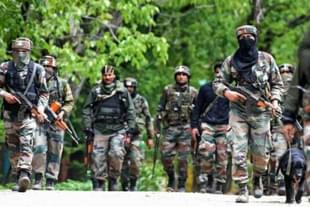Defence
Six Terror Attacks In One Month In Jammu; It's Time To Call Off The Ceasefire At Line Of Control
Swarajya Staff
Jul 16, 2024, 04:37 PM | Updated 06:49 PM IST
Save & read from anywhere!
Bookmark stories for easy access on any device or the Swarajya app.


Last night (15 July), once again, in an encounter in the Doda district of Jammu and Kashmir, four Indian Army soldiers, including a Major, were killed.
This is the fifth encounter in Doda since 12 June and follows another encounter in Kathua (8 July) where five soldiers were killed and an equal number were injured.
The Jammu region, since last year, has seen a spurt of such ambushes and attacks where a small team of terrorists (two-three men) lay ambushes on army convoys or trucks ferrying soldiers from one location to another, and this is the sixth such terror attack in just under a month.
In the past 32 months, 48 soldiers have been killed in just the Jammu region.
The attacks began with small team assaults in the upper reaches of the Poonch-Rajouri region in 2021.
Since then, these attacks have now spread to several areas of Jammu, including Doda, Reasi and Kathua, marking a shift from the earlier terror patterns in south Kashmir’s Shopian and Anantnag to Jammu.
These terrorists, after crossing the Line of Control (LoC), reach the upper reaches of Poonch, Rajouri, Doda and Kathua and hide in the natural caves of the mountains.
With the help of local guides, they scout locations from where the chances of mounting a counter-attack by army soldiers is limited. From these spots, they launch ambushes, causing significant casualties.
The ambush on the bus carrying Hindu pilgrims in Reasi or the Indian Air Force convoy on 4 May in Poonch is an example of this.
These terrorists, however, appear to be highly trained ex-Special Services Group (SSG) commandos of the Pakistani Army instead of the run-of-the-mill local boys who took up arms due to perceived notions about the Indian state.
They are able to sustain themselves with limited external support using local sympathisers and underground networks.
This is a well-thought-out strategy by the Pakistani higher command, ensuring that all attacks remain well below the threshold that could prompt Indian retaliation like Uri and Balakot, while also slowly bleeding Indian forces.
This could also be an attempt by the Pakistani command to divert Indian focus and resources into the Jammu region, allowing time to repair terror networks that were damaged after the abrogation of article 370 and giving the insurgency a new lease of life in Kashmir.
Inducting large numbers of troops in the region will likely have diminishing returns as the area in question is more than 5,000 square kilometres of mountain ranges with thick forests that provide natural cover to the terrorists.
Trying to find 30-40 terrorists in such a large forested area is like trying to find a needle in a haystack.
Instead of eliminating these terrorists, the movement of large numbers of troops will most likely present the terrorists with more opportunities to set up more such ambushes, increasing the possibility of casualties even further.
A different and more complex strategy is the need of the hour.
This includes strengthening the village defence guards, providing them with better weapons and more training, and increasing intelligence collection efforts to identify and weed out local sympathisers and overground workers.
This should be coupled with directly hitting the Pakistani Army, as Swarajya has argued earlier too (read about it here).
The focus should be on inflicting pain not only on the non-commissioned soldiers of the Pakistan Army but also on the officers.
Multiple small-scale and low-visibility, Uri-like surgical strikes, deep across the LoC, especially targeting the officers who mastermind and facilitate these activities.
If this requires calling off the ceasefire at LoC, so be it.
None of the above measures are guaranteed to stop these ambushes. But it will send a signal to the Pakistani Army that there will be repercussions, and India will not sit back while these terrorists run amok causing mayhem.





